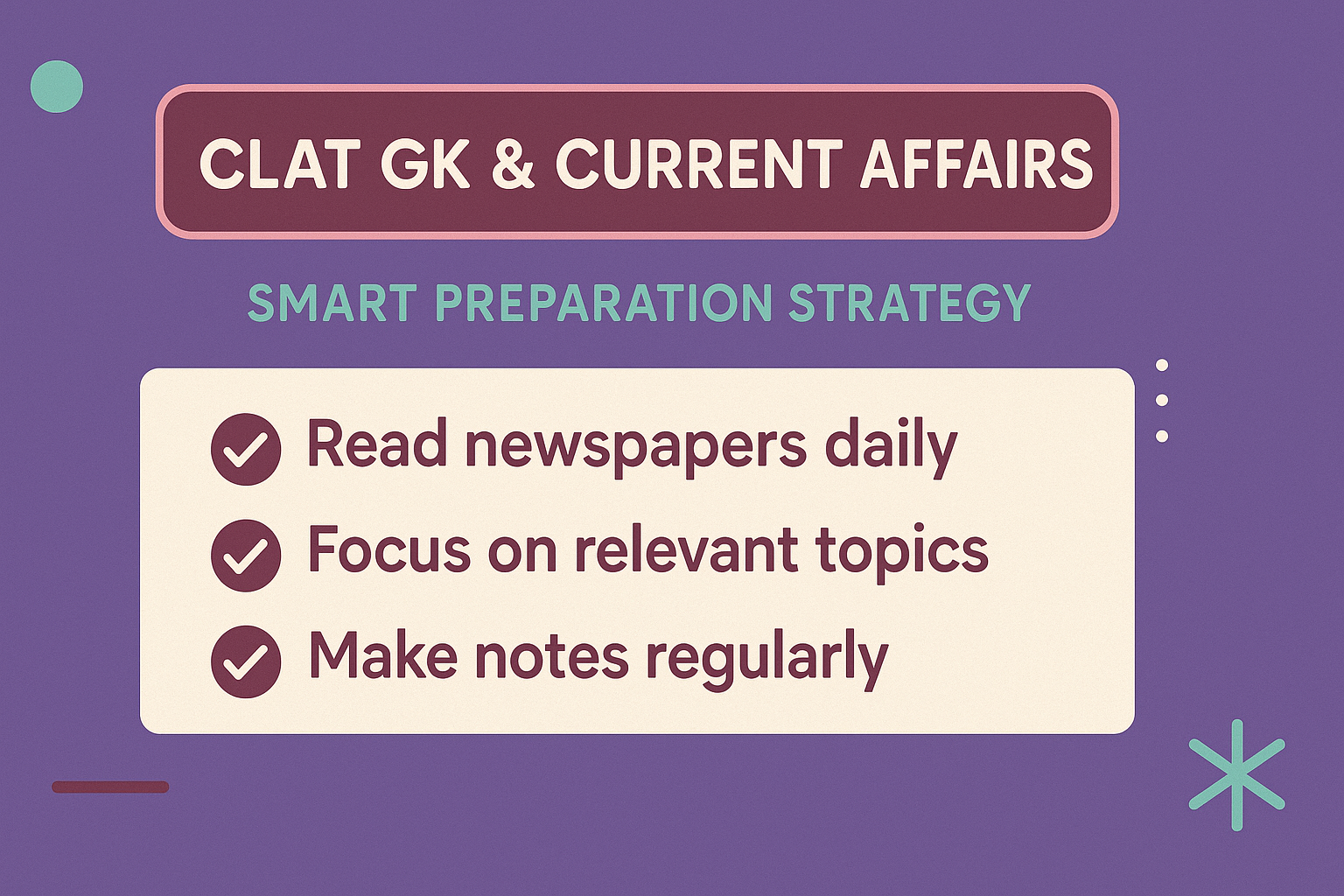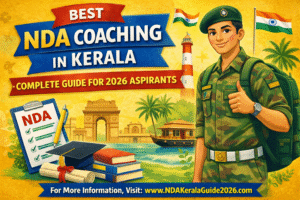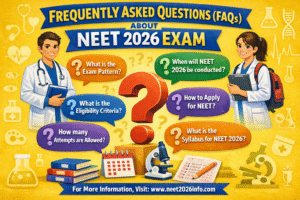Preparing for the General Knowledge (GK) and Current Affairs section of CLAT (Common Law Admission Test) requires a smart, strategic approach. This section tests not just rote memorization but awareness, comprehension, and analysis of national and international events. With the right preparation strategy, aspirants can score high in this high-return section. In this article, we’ll break down how to master GK and Current Affairs for CLAT 2025 with a smart plan, recommended sources, and tips.
Why GK and Current Affairs Matter in CLAT
The GK and Current Affairs section typically consists of 28–32 questions, forming a significant portion of the paper. It evaluates:
Awareness of recent events (past 6–12 months)
Understanding of historical and legal developments
Ability to read and comprehend current issues
Connection between news events and legal implications
Syllabus Overview: CLAT GK and Current Affairs
CLAT does not define a fixed syllabus, but the questions generally include:
1. Static General Knowledge
Indian History & Freedom Movement
Constitution and Polity
Geography
Science and Technology
Important Awards, Books, and Authors
2. Current Affairs
National and International Events
Government Policies & Schemes
Legal and Judicial Developments
Summits, Reports, Rankings
Sports, Economics, Environment
Smart Preparation Strategy for CLAT GK and Current Affairs
1. Follow a Monthly Timeline
Cover the last 10–12 months before the exam date. Break your prep into monthly chunks and stay consistent.
2. Read Quality Sources Daily
Newspapers: The Hindu or The Indian Express (editorial + front page)
Monthly Compilations: CLAT PG Quest, Vision IAS, or Drishti IAS current affairs
Websites: PRS India, PIB, India Year Book, Bar & Bench (for legal updates)
3. Use CLAT-Focused Resources
CLAT-specific current affairs modules from institutes like LegalEdge, CLATapult, or LawPrep
Lucent’s GK for basic static knowledge
One-liner Current Affairs PDFs for last-minute revision
4. Note-Making is Key
Maintain a GK journal or digital flashcards. Categorize notes by:
International
National
Legal
Environment
Sports, etc.
5. Practice Passage-Based Questions
Since CLAT has passage-based questions, practice comprehension + context-based MCQs:
Identify main themes
Interpret facts and opinions
Avoid guesswork without contextual backing
6. Revise Regularly
Weekly revision of important topics
Monthly mocks & quizzes on GK
Revision charts and mind maps for quick recall
7. Focus on Legal GK
This often overlaps with legal reasoning. Stay updated on:
Supreme Court judgments
Landmark bills or Acts
Law Commission reports
Legal news (use LiveLaw, Bar & Bench)
Common Mistakes to Avoid
Ignoring newspaper reading
Relying on outdated materials
Focusing too much on static GK
Skipping revision or not testing knowledge regularly
Mock Tests & Practice
Take sectional mocks for GK
Solve previous year CLAT GK questions
Participate in GK quizzes on platforms like GradeUp or Unacademy
Last-Minute Tips
Revise legal events and national policies
Don’t try to cover everything—focus on important, recurring themes
Use CLAT-focused monthly digests instead of general UPSC content
Conclusion
CLAT’s GK and Current Affairs section is all about smart work over hard work. If you prepare in a structured, focused, and analytical manner, this section can become your scoring engine. Keep up with daily news, practice consistently, and revise smartly. Your awareness and comprehension of current events might just be the key to unlocking your NLU dream.
FAQs: CLAT GK and Current Affairs
Q1. How many months of current affairs should I cover for CLAT?
You should cover at least 10–12 months before the exam. Focus more on the last 6 months.
Q2. What are the best sources for CLAT current affairs?
The Hindu, Indian Express, LegalEdge Monthly Digests, Vision IAS monthly compilations, and Bar & Bench (for legal news).
Q3. Is static GK still important for CLAT 2025?
Yes, but to a lesser extent. Focus 80% on current affairs and 20% on static GK linked to current events.
Q4. How can I retain so much GK information?
Make your own notes, revise weekly, use flashcards, and take frequent quizzes to reinforce memory.
Q5. Are passage-based questions difficult in the GK section?
Not if you regularly read newspapers and practice comprehension-based MCQs. Context and familiarity make them easier.







